
Find Help
More Items From Ergsy search
-

Infertility - IVF Treatment and Patient Information
Relevance: 100%
-
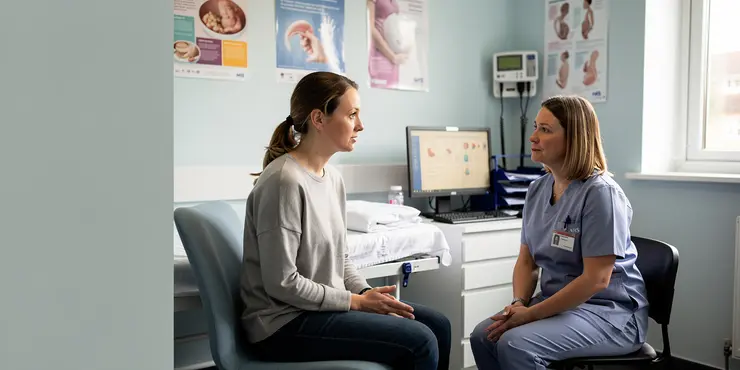
IVF Fertility Treatment from MumsNet
Relevance: 100%
-

What should I expect during IVF treatment?
Relevance: 95%
-

Is IVF successful?
Relevance: 84%
-

What is IVF?
Relevance: 84%
-

Who might need IVF?
Relevance: 82%
-

Are there risks associated with IVF?
Relevance: 81%
-
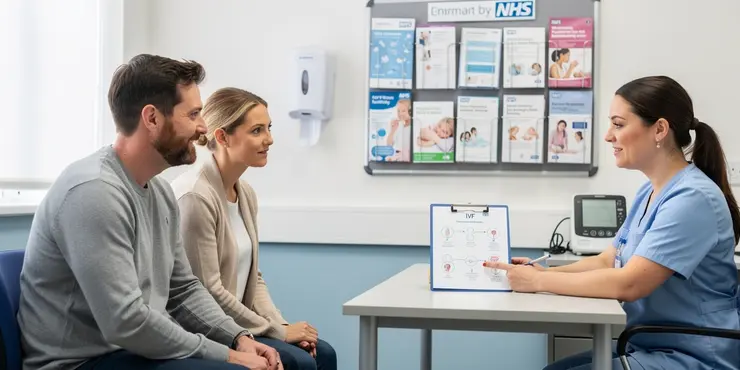
How does IVF work?
Relevance: 79%
-

Does IVF guarantee pregnancy?
Relevance: 78%
-

How do clinics determine if IVF is the right option?
Relevance: 76%
-
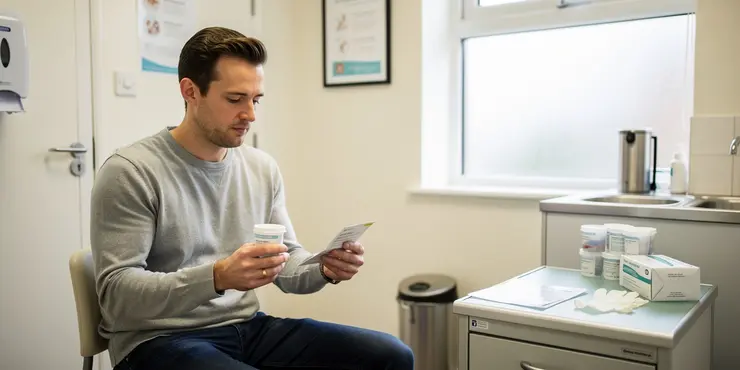
How is the sperm used in IVF?
Relevance: 75%
-
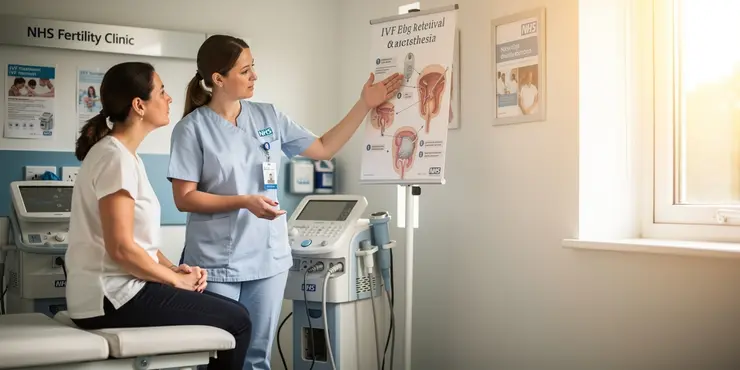
Does IVF require anesthesia?
Relevance: 75%
-
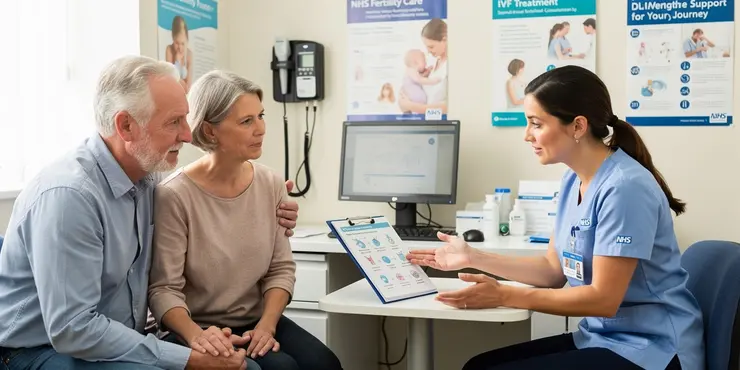
What is IVF and how does it work?
Relevance: 74%
-

Can IVF be used for gender selection?
Relevance: 74%
-
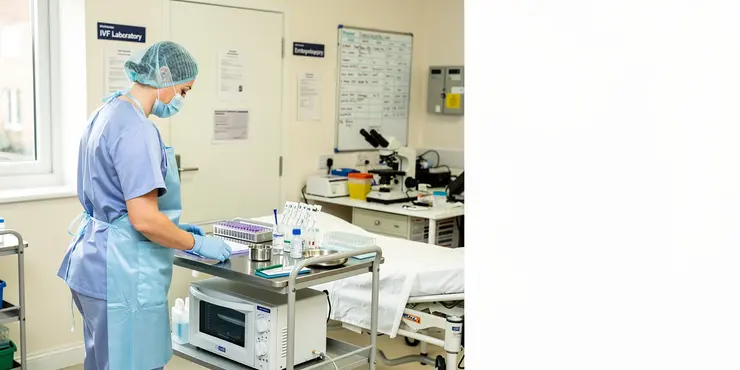
What is the role of the embryologist in IVF?
Relevance: 73%
-
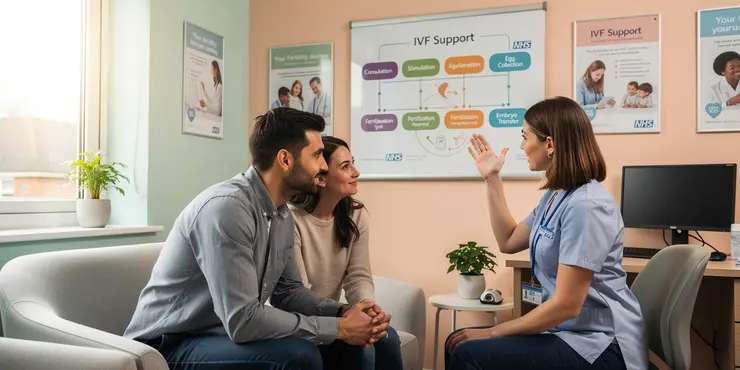
How long does an IVF cycle take?
Relevance: 72%
-
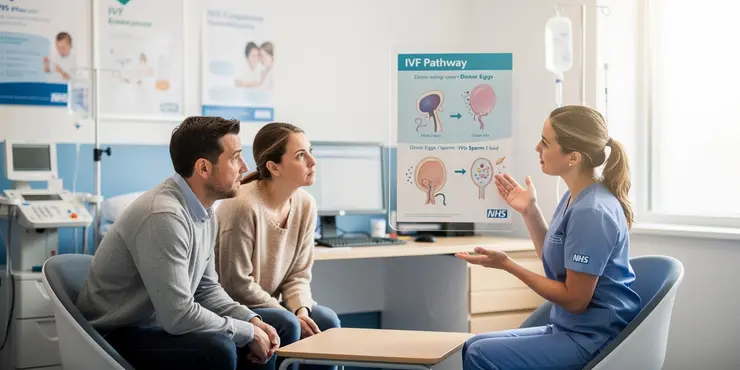
Can IVF be done with donor eggs or sperm?
Relevance: 72%
-

How many embryos are usually transferred in IVF?
Relevance: 70%
-

What are the main steps in an IVF cycle?
Relevance: 70%
-

How are embryos transferred during IVF?
Relevance: 67%
-
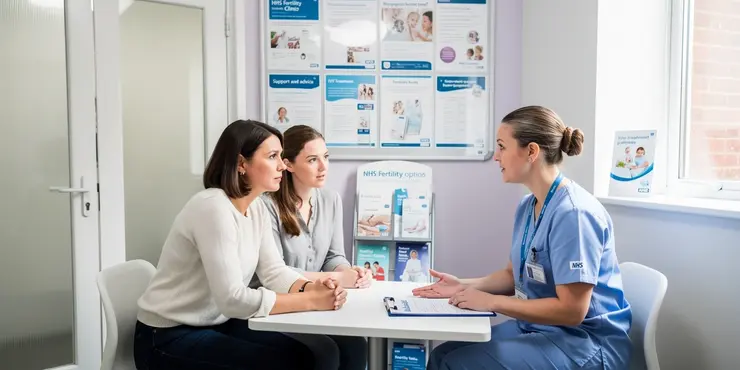
Fertility treatments on the up, but not via the NHS
Relevance: 61%
-

Having chemotherapy and other treatments in the Day Treatment Unit
Relevance: 34%
-

Female infertility explained
Relevance: 34%
-
Is there a treatment for measles?
Relevance: 33%
-
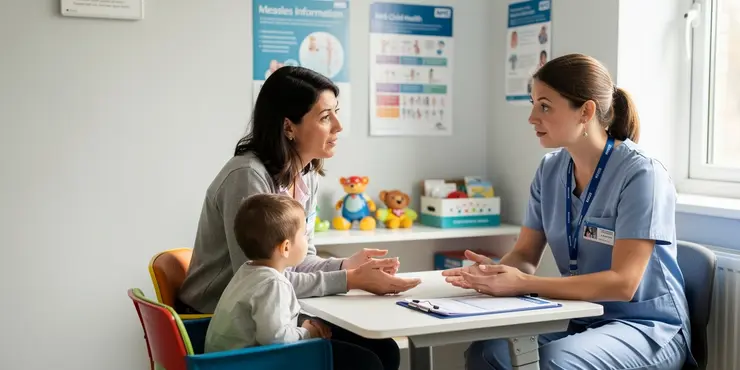
Is there a treatment for measles?
Relevance: 33%
-
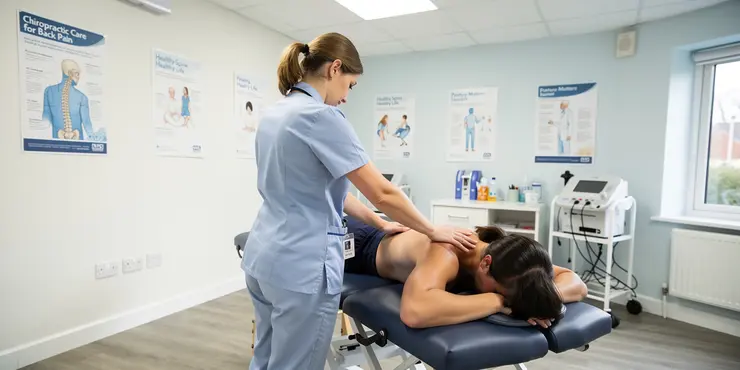
Are chiropractic treatments safe?
Relevance: 33%
-

Is Botox treatment expensive?
Relevance: 33%
-

Are chiropractic treatments painful?
Relevance: 33%
-

What is the treatment for appendicitis?
Relevance: 32%
-

Eating disorders: treatment
Relevance: 32%
-

How to apply for NHS funding to treat infertility
Relevance: 32%
-
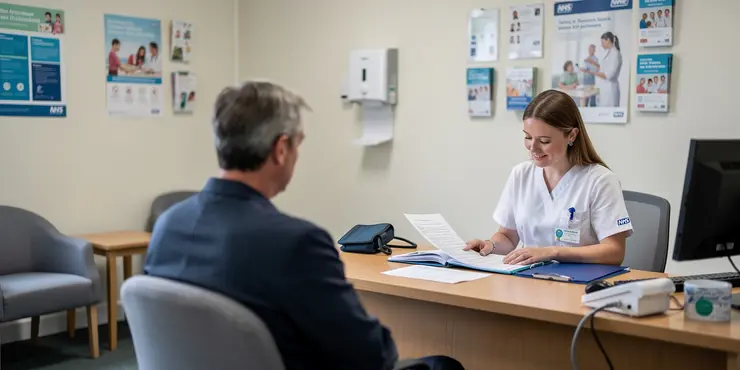
Is Paillon treatment a form of chemotherapy?
Relevance: 32%
-

What is Paillon treatment for cancer?
Relevance: 32%
-

Who developed the Paillon treatment?
Relevance: 32%
-
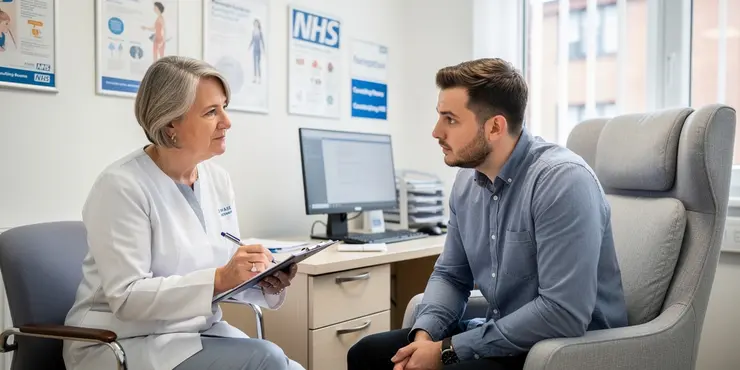
How is Paillon treatment administered?
Relevance: 32%
-

BSL - Treatments for insomnia
Relevance: 32%
-
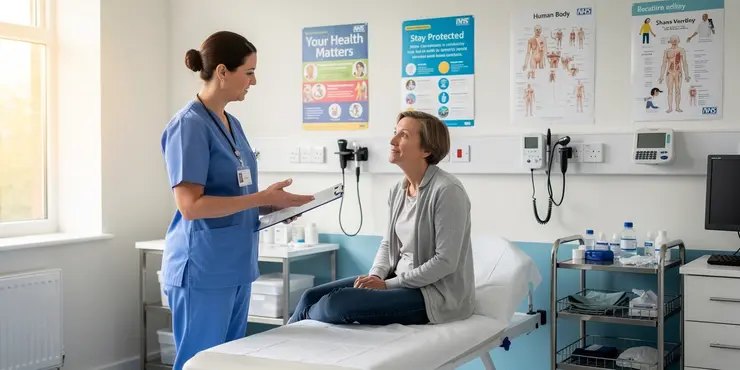
Is Paillon treatment FDA approved?
Relevance: 31%
-
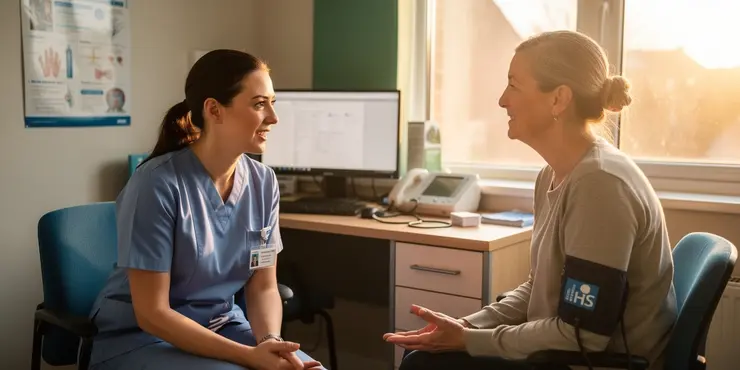
Is a prescription required for Paillon treatment?
Relevance: 31%
-
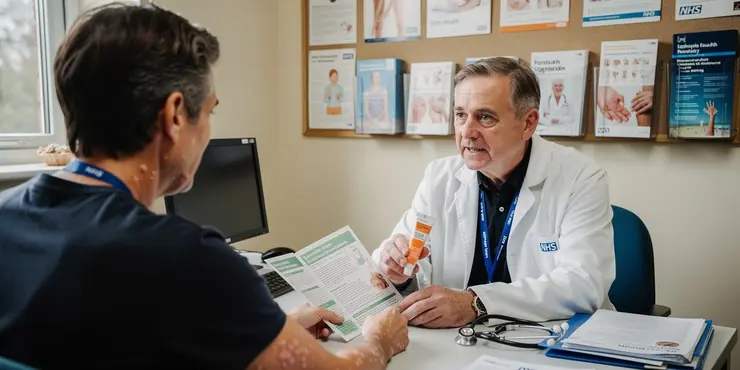
What are topical treatments for psoriasis?
Relevance: 31%
-
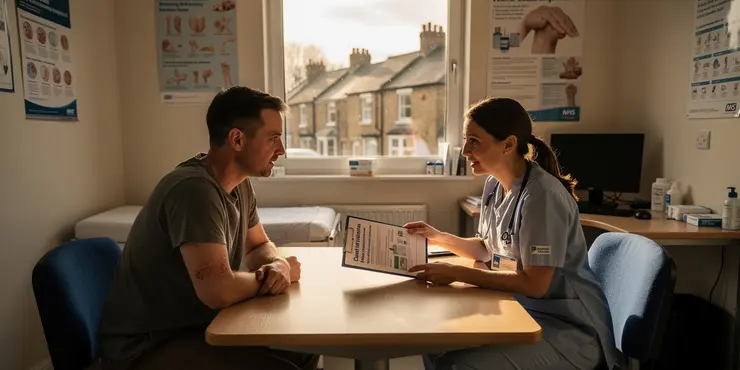
What treatments are available for eczema?
Relevance: 31%
Introduction to IVF
In vitro fertilisation (IVF) is a medical procedure that assists individuals or couples in conceiving a child. It involves fertilising an egg with sperm outside the body, in a laboratory setting. IVF is a multi-step process and each stage requires professional medical support and personal commitment. Understanding what to expect during IVF treatment can help reduce anxiety and prepare you for the journey ahead.
Initial Consultation and Assessment
The first step in the IVF process is an initial consultation with a fertility specialist. During this meeting, your medical history and any previous fertility tests will be reviewed. You may need to undergo additional examinations such as blood tests, ultrasound scans, or semen analysis to assess your reproductive health. Your consultant will discuss the IVF procedure, outline potential risks and benefits, and tailor a treatment plan to suit your needs.
Ovarian Stimulation
The next stage involves stimulating the ovaries to produce multiple eggs. This is achieved through a series of hormone injections that you will administer yourself over a period of days. Regular monitoring through blood tests and ultrasound scans ensures the eggs are developing properly. Your fertility specialist will adjust medication as needed based on these results. Expect to visit the clinic frequently for these necessary checks.
Egg Retrieval
Once the eggs have matured, a minor surgical procedure known as egg retrieval is performed. This typically takes place under sedation to ensure comfort. A needle is used to extract eggs from the ovaries, which are then taken to the laboratory for fertilisation. The procedure itself is relatively quick, and you can usually return home the same day. It is common to experience mild discomfort or cramping afterwards.
Fertilisation and Embryo Culture
In the laboratory, the retrieved eggs are fertilised with sperm provided by a partner or donor. The resulting embryos are then cultured for several days. Your embryology team will monitor their development closely. Depending on your treatment plan, genetic screening may be conducted on selected embryos to ensure they are healthy before implantation.
Embryo Transfer
The final stage of the IVF process is the embryo transfer. A healthy embryo is placed into the uterus using a thin catheter. This procedure is usually painless and requires no sedation. After the transfer, a period of rest is recommended. Your specialist will provide guidance on what activities to avoid during the subsequent weeks to improve implantation success.
Post-Treatment and Pregnancy Test
Following the embryo transfer, you will likely be given hormonal supplements to support the uterine lining. A pregnancy test is usually scheduled about two weeks later to determine if the treatment has been successful. During this waiting period, it's important to care for your physical and emotional well-being by maintaining a healthy lifestyle and seeking support from friends, family, or support groups when needed.
Introduction to IVF
IVF helps people have a baby. It means mixing an egg and sperm in a lab, not in the body. IVF has many steps, and doctors help you at each one. Knowing what will happen can make you feel better about the process.
Initial Consultation and Assessment
The first step is to talk with a doctor who knows about fertility. They will look at your health records and test results. You might have new tests like blood tests or scans. The doctor will tell you about IVF and make a plan just for you.
Ovarian Stimulation
Next, doctors help your body make more eggs. You will give yourself hormone shots for several days. Doctors will check your progress with blood tests and scans to make sure the eggs grow well. You will visit the clinic often for these checks.
Egg Retrieval
When the eggs are ready, doctors take them out with a small surgery. You will be sleepy so you don't feel it. A needle gets the eggs, and you go home the same day. You might feel a little sore after.
Fertilisation and Embryo Culture
In the lab, the eggs are mixed with sperm. The embryos grow for a few days. Experts watch them carefully. Sometimes, they check if embryos are healthy before they are put back in.
Embryo Transfer
The last step is putting a healthy embryo into the uterus. Doctors use a thin tube. This part doesn’t hurt, and you can stay awake. Resting after helps. The doctor will explain what to do to help the embryo stick.
Post-Treatment and Pregnancy Test
After the embryo is in, you might take hormones to help. About two weeks later, you take a pregnancy test to see if it worked. During this time, take care of yourself and talk to friends or family if you need support.
Frequently Asked Questions
What is IVF?
In vitro fertilization (IVF) is a procedure that involves retrieving eggs from a woman's ovaries and fertilizing them with sperm in a lab. The fertilized egg, called an embryo, is then transferred to the woman's uterus.
How long does the IVF process take?
The IVF process usually takes about 4-6 weeks from the start of the ovarian stimulation to the embryo transfer.
What are the chances of success with IVF?
Success rates vary depending on age, cause of infertility, and other factors. On average, the success rate is about 20-40% per cycle.
Will the ovarian stimulation medications cause discomfort?
Some women experience side effects like bloating, mood swings, and discomfort, but these symptoms are usually mild and temporary.
How is egg retrieval performed?
Egg retrieval is a minor surgical procedure performed under sedation. A needle is used to extract eggs from the ovaries.
Is the embryo transfer painful?
The embryo transfer is typically a painless procedure, similar to a pap smear, and does not require anesthesia.
How many embryos are transferred during IVF?
The number of embryos transferred depends on various factors, including age and embryo quality. Typically, one or two embryos are transferred.
Can IVF improve my chances of having twins or triplets?
IVF increases the chance of multiple births, but careful monitoring and the transfer of a single embryo can minimize this risk.
Do I need to take time off work during IVF treatment?
Some appointments, such as egg retrieval and embryo transfer, may require you to take time off, but most of the process can be managed around work commitments.
How should I prepare for IVF treatment?
Before starting IVF, you'll need to undergo various tests and follow specific instructions from your healthcare provider. Maintaining a healthy lifestyle is also recommended.
What lifestyle changes are necessary during IVF treatment?
Maintaining a healthy diet, avoiding alcohol, smoking, and excessive caffeine, and managing stress can improve treatment outcomes.
What are some common side effects of IVF medications?
Side effects can include bloating, nausea, headaches, mood swings, and abdominal pain due to ovarian hyperstimulation.
What is ovarian hyperstimulation syndrome (OHSS)?
OHSS is a rare but potentially serious condition where ovaries become swollen and painful after hormonal treatment during IVF.
What happens if the first IVF cycle doesn't work?
If the first cycle isn't successful, you can discuss further options with your doctor, including trying another cycle, adjusting the protocol, or considering other treatments.
Will IVF affect my weight?
Some women may experience temporary weight gain due to hormonal changes and water retention.
How many IVF cycles are usually needed to achieve pregnancy?
It varies, but many women undergo multiple cycles. On average, 3-4 cycles may be needed for a successful pregnancy.
What is preimplantation genetic testing (PGT)?
PGT is a procedure used during IVF to test embryos for genetic conditions or chromosomal abnormalities before transfer.
Is there an age limit for undergoing IVF?
While there isn't a strict age limit, the success rates decline with age, especially after 40. Clinics often set their own age limits for treatment.
Can IVF be done using donor eggs or sperm?
Yes, IVF can be performed using donor eggs or sperm, which can be an option for individuals with specific fertility challenges.
What emotional support is available during IVF treatment?
Many clinics offer counseling services or support groups to help manage the emotional aspects of IVF treatment.
What is IVF?
IVF means In-Vitro Fertilization. It helps people have babies. Doctors take a woman's egg and a man's sperm and join them outside the body. Then, they put the egg back in the woman's body to grow into a baby.
If you find reading hard, it can help to:
- Have someone read it with you.
- Listen to the information spoken out loud.
- Use pictures to help understand words.
In vitro fertilization, or IVF, is a way to help people have a baby. Doctors take eggs from a woman’s body and mix them with sperm in a special lab. When the egg and sperm come together, they form an embryo. The embryo is then placed back into the woman’s body to grow into a baby.
How long does IVF take?
IVF means having a baby with a doctor’s help.
IVF takes time. It can take about 4 to 6 weeks.
You might need some tests first. Then you take special medicine to help your body.
Sometimes it might take a little longer. Everyone is different.
It’s good to ask your doctor questions if you don’t understand.
Using a calendar can help you keep track of your appointments.
The IVF process usually takes about 4 to 6 weeks. It starts when the eggs in your ovaries are being prepared. Then, the embryo is placed in the womb.
How likely is it that IVF will work?
IVF can help some people have a baby.
Success depends on many things, like age and health.
Your doctor can give you advice and answer questions.
It might help to use simple charts or pictures to understand.
How well it works can change. It depends on how old you are, why it is hard to have a baby, and other things. Usually, it works about 20 to 40 times out of 100 tries.
Do the medicines for making eggs hurt?
Some women might feel a bit puffy, have mood changes, or feel uncomfortable. But these feelings usually don't last long and are not too bad.
How do doctors take eggs from the body?
Getting eggs out is a small surgery. You are asleep during it. A doctor uses a needle to take eggs from the ovaries.
Does it hurt when the embryo is put in?
Putting the embryo into the body doesn't usually hurt. It's like a pap smear test. You do not need to be put to sleep for it.
How Many Babies are Put in the Mom?
In IVF, doctors put tiny babies called embryos in the mom's belly. Usually, 1 or 2 tiny babies are put in. This helps the mom have a better chance of having a baby. Doctors talk with the mom to decide what is best.
If you find reading hard, you can ask someone to help you read it. You can also use a computer or phone to read it out loud.
How many embryos are moved depends on different things, like how old you are and how good the embryos are. Usually, one or two embryos are moved.
Can IVF help me have twins or triplets?
IVF stands for In Vitro Fertilization. It is a medical process that helps people have babies.
When you do IVF, there is a chance you could have twins or triplets. This is because doctors might put more than one fertilized egg into the womb to help with pregnancy.
If you want to know more about IVF and twins or triplets, you can talk to a doctor. They can explain it and answer your questions.
IVF can make having twins or more babies at once more likely. But doctors can watch closely and only put one embryo back to help lower this chance.
Do I need to take time off work during IVF treatment?
Will I need to stop working when I have IVF treatment?
Having IVF means going to the doctor a lot. You might have to take some days off work for appointments and rest. It's good to talk to your boss about it.
Here are some things that can help:
- Talk to your boss early. Explain you might need some days off.
- Plan your work. See if you can do extra work on other days.
- Ask for help if you need it. Maybe a work friend can help you.
Some doctor visits, like taking out eggs and putting embryos in, might mean you need to take a break from work. But you can do most of the other steps while still going to work.
How can I get ready for IVF treatment?
Here are some easy tips to help you get ready:
- Talk to your doctor. Ask them questions if there is something you don't understand.
- Eat healthy foods like fruits and vegetables.
- Stay active. Go for a walk or do some light exercise.
- Get plenty of rest. Sleep well at night.
- Find ways to relax. Try deep breathing or listen to your favorite music.
If reading is hard, use tools to help. Audio books or apps that read out loud can be useful. Ask someone you trust for help too!
Before you start IVF, you will have some tests. Your doctor will tell you what to do. It's good to live healthy too.
What changes should you make in your life during IVF treatment?
Here are some simple steps you can take to help you during IVF:
- Eat healthy foods like fruits and vegetables.
- Drink plenty of water every day.
- Get enough sleep at night.
- Do light exercise like walking or stretching.
- Try to stay calm and relaxed.
- Talk to your doctor about any questions you have.
It can be helpful to use a journal or diary to write down your thoughts and feelings. You can also ask a friend or family member to support you.
Eating healthy food, not drinking alcohol, not smoking, and not having too much caffeine can help you feel better. Staying calm and not getting too stressed is also important.
What are some common side effects of IVF medicines?
IVF medicines can have side effects. Here are some you might notice:
- Feeling sick or queasy
- Feeling very tired
- Headaches
- Feeling emotional or moody
- Swollen tummy
If you or someone you know is having trouble, it's good to talk to a doctor. A doctor can help.
Sometimes relaxation exercises or talking to a friend can help too.
Some things might happen when you take this medicine:
- Your tummy might feel full and big. This is called bloating.
- You might feel like you need to throw up. This is called nausea.
- Your head might hurt. This is called a headache.
- You might feel happy one moment and sad the next. These are mood swings.
- Your belly might hurt. This is called abdominal pain, and it can happen when your ovaries make many eggs at once.
If you feel any of these, talk to a doctor or adult you trust.
What is Ovarian Hyperstimulation Syndrome (OHSS)?
Ovarian Hyperstimulation Syndrome, or OHSS, happens when a woman's ovaries swell and get painful. This can happen during treatments to help them have a baby.
Signs of OHSS:
- Feeling bloated
- Stomach pain
- Nausea (feeling like you need to throw up)
- Weight gain
Tips for Understanding:
- Use pictures to help understand the information.
- Ask a friend or family member to read with you.
- Take your time to read slowly and carefully.
OHSS is a rare condition. It can make your ovaries big and hurt after taking special medicine for IVF.
What if IVF doesn't work the first time?
If IVF doesn't work the first time, don't worry. Many people try again. Doctors will talk to you. They can explain why it didn't work and what to do next. You might need more tests or different medicine.
Support is important. Talk to friends and family. A counselor can also help you feel better. Remember, it is okay to try again or take a break.
If it doesn't work the first time, you can talk to your doctor about what to do next. You might try again, make some changes, or look at other treatments.
Will IVF change my weight?
Some people might gain or lose weight during IVF. It's different for everyone. If you are worried, talk to your doctor. You can also try:
- Eating healthy food
- Doing light exercise
- Keeping a weight journal
These can help you feel better and stay healthy during IVF.
Some women might gain a little weight for a short time. This can happen because of changes in hormones and the body holding onto extra water.
How many IVF tries are needed to have a baby?
Every woman is different. Many women may need to try a few times. On average, it might take 3 to 4 tries to have a baby.
What is preimplantation genetic testing (PGT)?
Preimplantation genetic testing, or PGT, is a test that doctors do on embryos. Embryos are tiny groups of cells that can grow into a baby.
Doctors use PGT to check if an embryo has any problems with its genes. Genes are like special codes in our bodies that tell us how to grow and look.
People can choose PGT if they want to make sure their baby is healthy before it starts growing in the mom's belly.
If you find this hard, you can ask someone you trust, like a teacher or a family member, to help you understand. Using drawings or models can also make things clearer.
PGT is a check done during IVF. It looks at the embryos to see if they have any problems in their genes or chromosomes before they are put back into the mother.
Can older people have IVF?
IVF is a way to help people have a baby. There is no age limit for trying IVF, but it works best for younger people.
Doctors can help you understand if IVF is a good choice for you. You can ask them questions and talk about your options.
It might help to bring a friend or family member when you talk to the doctor. They can help you understand better.
There is no strict age limit, but it gets harder to succeed as you get older. This is especially true after age 40. Clinics might have their own age rules for treatment.
Tools like reading rulers or text-to-speech software can help you read more easily.
Can IVF use donated eggs or sperm?
Yes, IVF can use donated eggs or sperm.
IVF stands for In Vitro Fertilization. It helps people have babies.
You can use an egg from another woman. This is a donated egg.
You can also use sperm from another man. This is donated sperm.
People use donated eggs or sperm for different reasons. It can help if you have trouble having a baby.
If you want more information, ask a doctor or nurse.
Yes, IVF can use eggs or sperm from a donor. This can help people who have certain problems having a baby.
What help is there for feelings during IVF?
Going through IVF can be hard on your feelings.
If you feel worried or sad, there are people who can help. You might talk to:
- Doctors and Nurses: They can answer questions and help you feel better.
- Therapists or Counselors: They are good at listening and can give advice.
- Support Groups: You can meet other people going through the same thing. You can share stories and feel less alone.
Here are some tools that might help:
- Journaling: Write down your thoughts and feelings. It can help make you feel better.
- Relaxation Apps: Use apps to help you relax and stay calm.
- Meditation: This can help you feel peaceful and worry less.
Lots of clinics have people you can talk to or groups you can join. They help you feel better about IVF treatment.
Useful Links
This website offers general information and is not a substitute for professional advice.
Always seek guidance from qualified professionals.
If you have any medical concerns or need urgent help, contact a healthcare professional or emergency services immediately.
Some of this content was generated with AI assistance. We’ve done our best to keep it accurate, helpful, and human-friendly.
- Ergsy carfully checks the information in the videos we provide here.
- Videos shown by Youtube after a video has completed, have NOT been reviewed by ERGSY.
- To view, click the arrow in centre of video.
- Most of the videos you find here will have subtitles and/or closed captions available.
- You may need to turn these on, and choose your preferred language.
- Go to the video you'd like to watch.
- If closed captions (CC) are available, settings will be visible on the bottom right of the video player.
- To turn on Captions, click settings .
- To turn off Captions, click settings again.
More Items From Ergsy search
-

Infertility - IVF Treatment and Patient Information
Relevance: 100%
-

IVF Fertility Treatment from MumsNet
Relevance: 100%
-

What should I expect during IVF treatment?
Relevance: 95%
-

Is IVF successful?
Relevance: 84%
-

What is IVF?
Relevance: 84%
-

Who might need IVF?
Relevance: 82%
-

Are there risks associated with IVF?
Relevance: 81%
-

How does IVF work?
Relevance: 79%
-

Does IVF guarantee pregnancy?
Relevance: 78%
-

How do clinics determine if IVF is the right option?
Relevance: 76%
-

How is the sperm used in IVF?
Relevance: 75%
-

Does IVF require anesthesia?
Relevance: 75%
-

What is IVF and how does it work?
Relevance: 74%
-

Can IVF be used for gender selection?
Relevance: 74%
-

What is the role of the embryologist in IVF?
Relevance: 73%
-

How long does an IVF cycle take?
Relevance: 72%
-

Can IVF be done with donor eggs or sperm?
Relevance: 72%
-

How many embryos are usually transferred in IVF?
Relevance: 70%
-

What are the main steps in an IVF cycle?
Relevance: 70%
-

How are embryos transferred during IVF?
Relevance: 67%
-

Fertility treatments on the up, but not via the NHS
Relevance: 61%
-

Having chemotherapy and other treatments in the Day Treatment Unit
Relevance: 34%
-

Female infertility explained
Relevance: 34%
-
Is there a treatment for measles?
Relevance: 33%
-

Is there a treatment for measles?
Relevance: 33%
-

Are chiropractic treatments safe?
Relevance: 33%
-

Is Botox treatment expensive?
Relevance: 33%
-

Are chiropractic treatments painful?
Relevance: 33%
-

What is the treatment for appendicitis?
Relevance: 32%
-

Eating disorders: treatment
Relevance: 32%
-

How to apply for NHS funding to treat infertility
Relevance: 32%
-

Is Paillon treatment a form of chemotherapy?
Relevance: 32%
-

What is Paillon treatment for cancer?
Relevance: 32%
-

Who developed the Paillon treatment?
Relevance: 32%
-

How is Paillon treatment administered?
Relevance: 32%
-

BSL - Treatments for insomnia
Relevance: 32%
-

Is Paillon treatment FDA approved?
Relevance: 31%
-

Is a prescription required for Paillon treatment?
Relevance: 31%
-

What are topical treatments for psoriasis?
Relevance: 31%
-

What treatments are available for eczema?
Relevance: 31%


